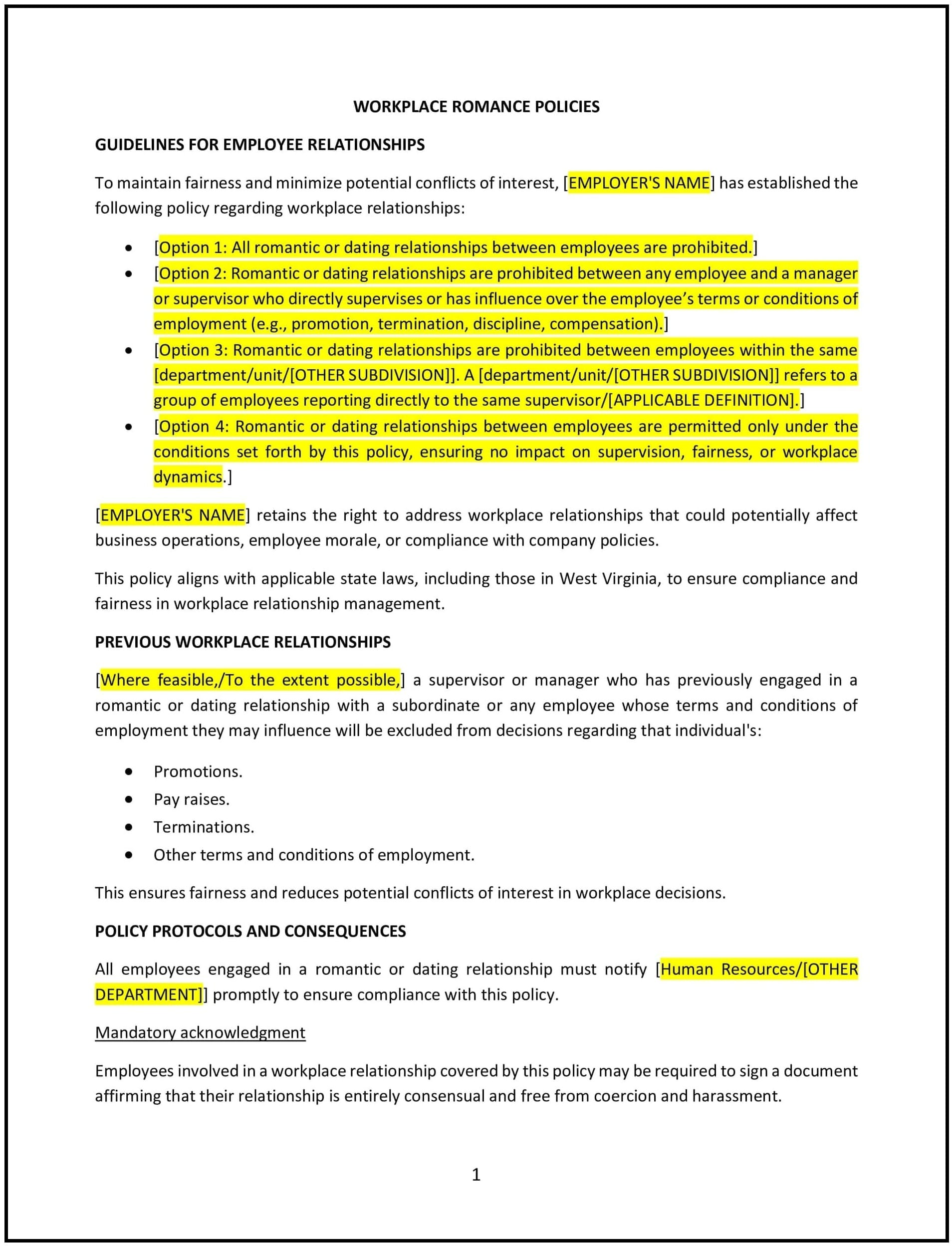Workplace romance policy (West Virginia): Free template
Got contracts to review? While you're here for policies, let Cobrief make contract review effortless—start your free review now.

Customize this template for free
Workplace romance policy (West Virginia)
In West Virginia, a workplace romance policy establishes guidelines for managing romantic relationships between employees to maintain professionalism, prevent conflicts of interest, and ensure a respectful work environment. This policy outlines acceptable behaviors, disclosure requirements, and procedures for addressing potential challenges arising from workplace relationships.
The policy aims to balance employees' rights to personal relationships with the organization’s need to maintain a productive and harmonious workplace.
How to use this workplace romance policy (West Virginia)
- Define acceptable relationships: Specify which workplace relationships are allowed and any restrictions, such as those involving direct reporting lines or management roles.
- Outline disclosure requirements: Provide steps for employees to disclose relationships that may create conflicts of interest or affect workplace dynamics.
- Establish boundaries: Set expectations for professional conduct in the workplace, emphasizing that personal relationships must not interfere with work responsibilities or team cohesion.
- Address conflicts of interest: Detail procedures for mitigating potential conflicts, such as reassigning roles or responsibilities if necessary.
- Support compliance: Ensure the policy aligns with West Virginia labor laws and federal regulations to protect employee rights and prevent workplace discrimination or harassment.
Benefits of using a workplace romance policy (West Virginia)
- Maintains professionalism: Encourages employees to separate personal and professional relationships to avoid workplace disruptions.
- Reduces conflicts of interest: Establishes clear guidelines to address situations where personal relationships might affect workplace decisions or dynamics.
- Protects employee rights: Ensures relationships are managed fairly and without discrimination or favoritism.
- Promotes transparency: Encourages open communication about workplace relationships to prevent misunderstandings or rumors.
- Supports compliance: Aligns with West Virginia laws and federal regulations to prevent legal risks and ensure a respectful workplace.
Tips for using a workplace romance policy (West Virginia)
- Communicate the policy: Share the policy with employees during onboarding and ensure it is easily accessible for reference.
- Train managers: Provide guidance to supervisors on handling disclosures and addressing workplace issues related to personal relationships.
- Maintain confidentiality: Handle all disclosures and related discussions with sensitivity and discretion to protect employees’ privacy.
- Monitor workplace dynamics: Stay alert to potential issues arising from workplace relationships, such as favoritism or conflicts, and address them promptly.
- Review periodically: Update the policy to reflect changes in West Virginia laws, workplace practices, or organizational priorities.